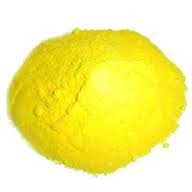7 Most commonly used Coagulants in Water Treatment
General and 7 most commonly used coagulants in water treatment plant is under:
1.Alum (aluminum sulfate), Al2(SO4)3. Still, the most common coagulant in the United States, it is often used in conjunction with cationic polymers.
2.Polyaluminum chloride, Al(OH)x(C1)y. This is efficient in some waters, requiring less pH adjustment and producing less sludge.(simply its called PAC)

3.Ferric chloride, FeCl3. This may be more effective than alum in some applications.
4.Ferric sulfate, Fe2(SO4)3. It is effective in some waters and more economical in some locations.
5.Ferrous Sulfate, FeSO4. It costs bit more compare with ferric chloride but result would be better than that
6.Sodium Aluminate, Na2Al2O4
7.Cationic polymers can be used alone as the primary coagulant or in conjunction with aluminum or iron coagulants.
Now a Days most of the plants are using Cationic polymer,the cost is expensive compare with inorganic coagulants.but it can be use with wider pH range and produce less sludge.
The choice or selection of coagulant chemical depends upon the nature of the suspended solid to be removed, the raw water conditions, the facility design, and the cost of the amount of chemical necessary to produce the desired result.
Note:
1. Coagulant selection is very important role, hence Take Jar test / Pilot study using with available Coagulants along with your different process content effluent and conclude the result, which one is affordable.
2. Once if it is selected, so it is to be implement to the bulk process hence plan and design / fabricate the equipment and choose civil construction accordingly
3. Adequate detention time must be allowed, it is also enhance the successive rate of coagulation and flocculation process. so take care equipment selection and its sequence.
Posted by T.P.Sivanandan on July 13th, 2013